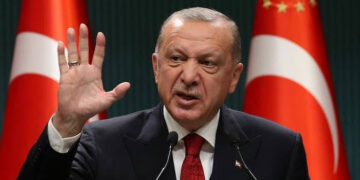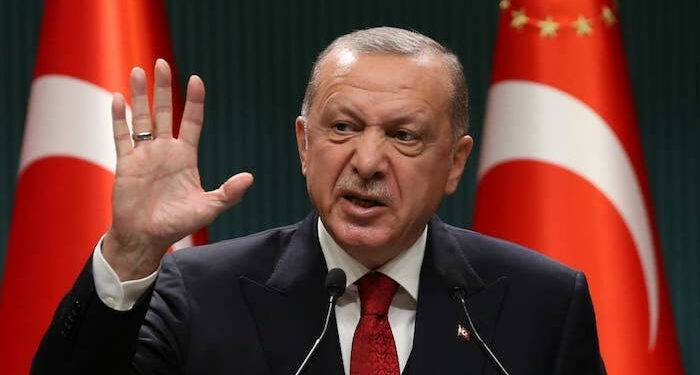By John Ikani
Turkish President Recep Tayyip Erdogan has sacked the head of the State Statistics Agency, Sait Erdal Dincer, according to a decree published on Saturday, after annual inflation figures angered both the pro-government and opposition camps.
The dismissed Dincer came under fire after releasing data this month that put the annual inflation rate at a 19-year high of 36.1 percent.
The opposition said it was underreported, claiming that the real cost of living increases was at least twice as high.
Erdogan meanwhile reportedly criticised the statistics agency in private for publishing data that he felt overstated the scale of Turkey’s economic malaise.
Dincer was just the latest in a series of economic dismissals by Erdogan, who has sacked three central bank governors since July 2019.
Erdogan has railed against high-interest rates, which he believes cause inflation — the exact opposite of conventional economic thinking.
Dincer seemed to sense his impending fate.
“I sit in this office now, tomorrow it will be someone else,” he said in an interview with the business newspaper Dunya earlier this month.
“Never mind who the chairman is. Can you imagine that hundreds of my colleagues could stomach or remain quiet about publishing an inflation rate very different from what they had established?”
“I have a responsibility to 84 million people,” he added.
Erdogan did not explain his decision to appoint Erhan Cetinkaya, who had served as vice-chair of Turkey’s banking regulator, as the new state statistics chief.
“This will just increase concern about the reliability of the data, in addition to major concerns about economic policy settings,” Timothy Ash of BlueBay Asset Management said in a note to clients.
The agency is due to publish January’s inflation data on February 3.
In case you missed it
Turkish citizens have been burning the Lira on the streets amid a surge in inflation.
In November, the inflation rate crossed more than 21 per cent. People have no choice but to line up for subsidised bread.
They are also cutting down on meat, some have even fled the country for a better life in Europe.
Notwithstanding, Erdogan pushed the central bank to sharply lower borrowing costs despite the annual rate of inflation soaring to more than 20 percent.
Economists believe the policy could see consumer price increases reach 30 percent or higher in the coming months.
But Erdogan said in remarks aired by state television that his Muslim faith prevented him from supporting rate hikes.
“They complain we keep decreasing the interest rate. Don’t expect anything else from me,” he said in the televised comments.
“As a Muslim, I will continue doing what our religion tells us. This is the command.”
Islamic teachings forbid Muslims from receiving or charging interest on loaned or borrowed money.
Erdogan has previously cited his religion in explaining why he believes interest rates cause inflation instead of reining it in.
High-interest rates are a drag on activity and slow down economic growth.
But central banks raise their policy rates out of necessity when inflation gets out of hand. High-interest rates return value to saving money for consumers and make it expensive for companies to invest, thus reducing the demand that often fuels rising prices.
Amid the economic downturn, Turkish voters are gearing up to get rid of Erdogan in 2023 with the president’s approval ratings fallen to record lows.
According to a survey, just 39 per cent of the Turkish voters want him to continue. Erdogan’s AKP has support from just 26 per cent of the voters.
The national alliance which is a collective of major opposition leaders seems to have got ahead with almost 40 per cent of the voters backing them.




































